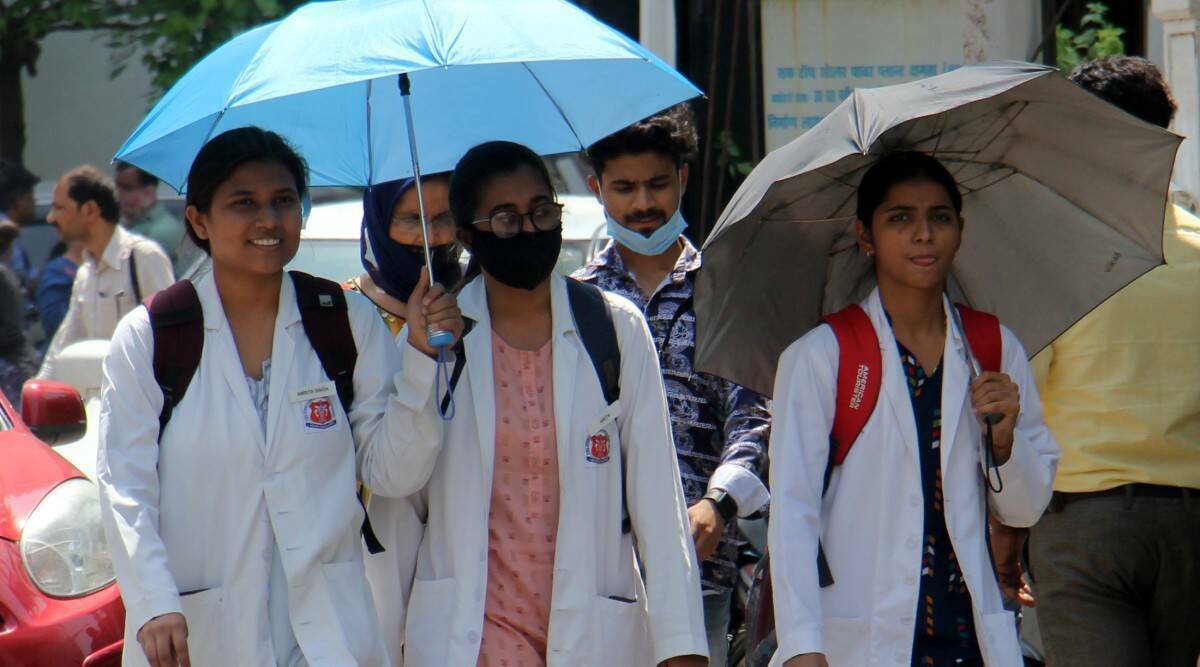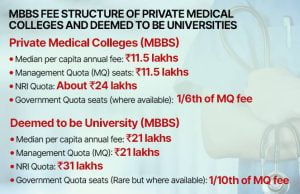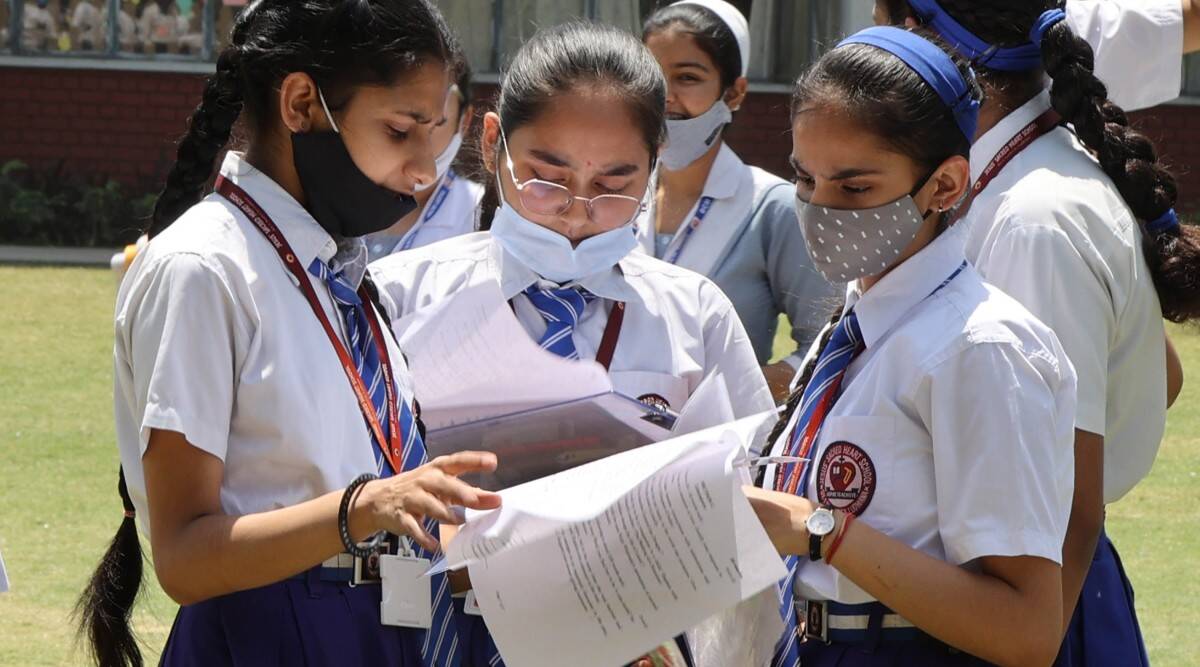The median fee for private medical colleges is Rs 11.5 lakh per year, according to an expert body

An expert group has determined under the National Medical Commission, the apex medical regulator, that the median fee for deemed universities is Rs 21 lakh per year, almost double the median fee for private medical colleges which is Rs 11.5 lakh per year. When a list of numbers is arranged ascendingly or descendingly, the median is the number in the middle.
Approximately 96,000 MBBS seats are available in the country for 2023, with nearly half of these seats being offered by the private sector (private medical colleges and deemed universities).
Dr Subhas Sarkar, Minister of State for Education, provided information to Parliament in a written reply that indicated that the median fee for management quota seats was the same as the median fee for normal seats in private colleges and deemed universities. It was reported that the median fee for seats under the NRI quota (reserved for NRIs, Overseas Citizens of India, persons of Indian origin or those with an NRI sponsor living outside India) was more than double that of normal seats at Rs 24 lakhs per year in private medical colleges. At deemed universities, the median fee for NRI quota seats was 50 percent higher than the normal fee.

The reply says that for government quota seats in private colleges with usually lower fees and better qualifying ranks, the cost is one-sixth the normal private college fee and one-tenth the normal deemed university fee.
Across the country, there was a drastic difference in fee structures between different categories of seats. Therefore, the expert committee was tasked with determining the median fee for MBBS, since the government couldn’t set a baseline fee,” said Dr Pravin Shingare, former head of Maharashtra’s Department of Medical Education and Research.
We’re able to guide the fee regulatory authorities across the country – each state has 27 fee regulatory committees, and each deemed university has 70.
The fee won’t become the baseline for private medical colleges in the country, though. Government has increased the number of medical seats and lowered tuition in private medical colleges to make medical education more accessible so India’s needs can be met and children don’t have to go abroad to study.
The National Medical Commission announced earlier this year that private colleges and deemed universities must charge the same fee as government medical colleges for half the seats. Moreover, the guidelines outlined certain principles for calculating the fees. The matter is pending in court, even though the NMC had stated the new fee structure would apply from the current session.
The rulings of the Supreme Court currently state that deemed universities have a right to determine the fees for their seats in consultation with their fee regulatory committee, which a retired judge heads. The NMC cannot unilaterally decide to fix the fees for all 100% seats, despite the current court matter. In order to do so, the government must approach Parliament,” said Dr Shingare.



